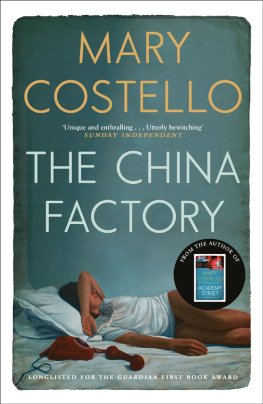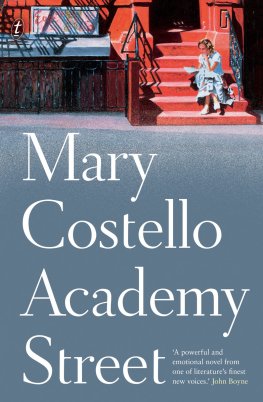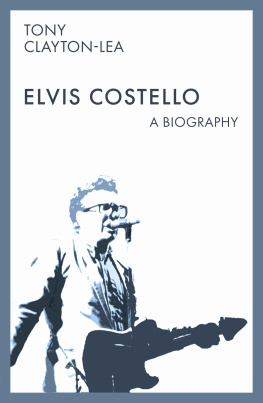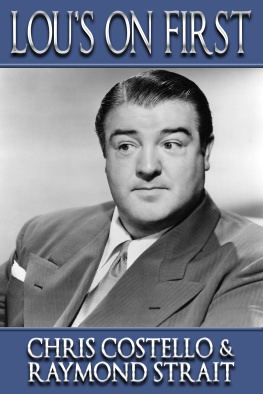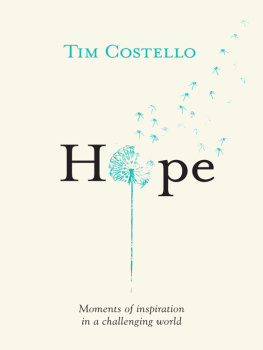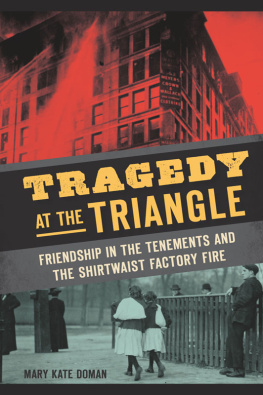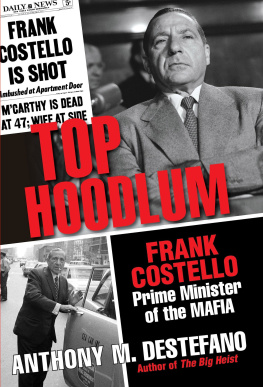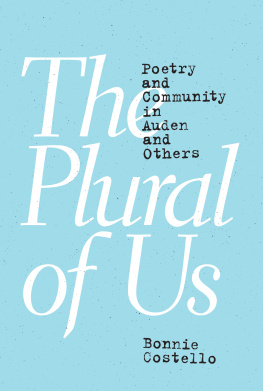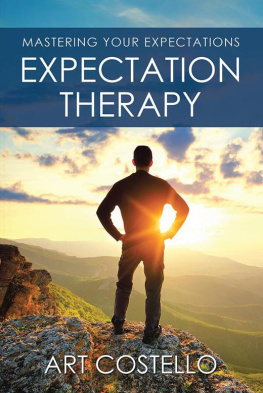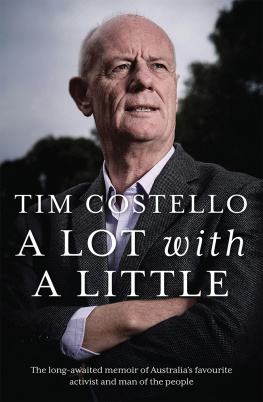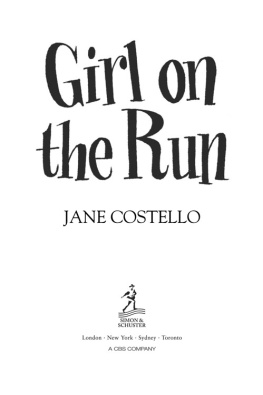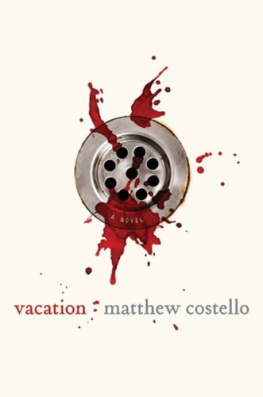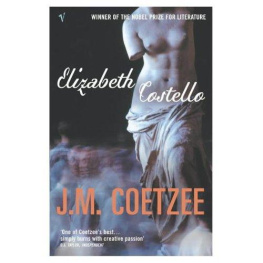Mary Costello
The China Factory
And night by night, down into solitude, the heavy earth falls far from every star.
We are all falling. This hands falling too all have this falling-sickness none withstands.
RAINER MARIA RILKE
The summer I turned seventeen I worked as a sponger in a china factory. I walked to the end of our road every morning to catch my lift to the city with Gus Meehan, and every evening I came home with a film of fine dust lodged in the pores of my skin. From the back seat I had a view of Guss broad shoulders and the china clay caked in the creases of his neck and in his grey hair. The air inside the car smelled of cigarette ash and stale masculine sweat. Guss other passenger, Martha Glynn, was a woman in her thirties from his end of the parish, and was engaged to be married to a local man for over twelve years. Martha worked in the office of an electronics factory in the industrial estate. Gus was shy and deferential to everyone but more so to Martha, sitting beside him in her good skirt and white blouse. He had a slight stammer and drew his meaty hands close to him on the steering wheel, as if they might cause offence.
The spongers station was at the lower end of the factory between the moulding area and the kilns, close to the yard entrance. All day long I stood in my white coat at a wooden table, first paring, then dampening and sponging off the symmetry lines that the moulds left on the clay cups. The cups were cool and damp to the touch, and brittle enough to collapse at the slightest pressure. My hands, dipping in water for hours, were pale and crinkled and spotless by evening. All day long the radio churned out the pop hits of that summer and the sun spilled in through skylights and fell in yellow pools on the factory floor. I would sigh and think of home and the farm work and when the thoughts grew lonesome and a small ache began to surface, I would carry my basin over to the big steel sink near the entrance and spill out the cloudy white water. I smiled when I passed the other girls those first days, and longed to speak, but feared that words would betray the yearning for friendship that I felt inside.
Gus was the only soul I knew in the china factory at the start. We parted in the car park on my first morning and I caught sight of him later on in heavy boots and dirty white overalls, rolled down and knotted at his waist. He lurched in from the yard, leaning forward as he hauled a wagon laden with bags of clay. His face glistened with sweat. When he passed the sinks and the sponging tables, dragging his wagon like a beast of burden, he did not raise his head or look for me. He did not seem to be the same Gus Id known that morning.
That summer was hot. The kilns fired all day long, burning the air dry, irritating our skin and leaving us hot and cross and exhausted. Further up the factory the cups and plates and vases were transformed into white glazed china and further along again they were decorated with flowers and Celtic designs and gold-leaf rims. The girls in the art and admin departments floated in and out through a white door at the far end that led to the elegant showrooms, with their high ceilings and antique furniture and chandeliers.
At lunch time every day we clocked out and walked down the curved driveway and up to the shops at Mervue for Snack bars, Coke, cigarettes. The first few days before I knew better I sat alone in the dank basement canteen and bought a 7-Up and ate the sandwich Id brought from home. The quietness amplified my isolation and after two days the smell of dirty oilcloths drove me outside. I sat under a tree and read a book. The lawn was wide, perfectly mown, with old oak trees along the high wall, and shrubs and flowers in the borders. The driveway curved up from the gate and then split, with one fork leading round the back to the factory and the other to the main house and Visitors Centre at the front. The house was Georgian with rows of high paned windows and pillars and granite steps up to the front door. Inside, the hall was carpeted in deep navy blue. Day trippers and coach loads of Americans arrived each day and traipsed through the showrooms in search of dinner services and cake stands and wall plates.
When the other girls returned from Mervue they dropped onto the grass beside me and lit up their cigarettes. They were older than me, harder, funnier and more robust in their dealings with each other than I was accustomed to.
Id never go all the way with Francis, Marion said.
Marion was the senior sponger and the self-appointed leader, the one who complained to the supervisor about the heat or the infrequency of our toilet and cigarette breaks. She was four or five years older than me, shorter, plumper, stronger. She spoke in pronouncements and I saw her future Francis handing over his pay packet on Friday evenings, the two of them rearing decent reliable sons whod work in the factories, marry young and start the same cycle all over again.
Jesus, what are you? A nun or something? scoffed Angela. Angela was blunt and a little frightening; she would call the men over when they passed at the end of lunch hour and tease them. But Marion was immune to Angela, to all of us. One day she said, If I as much as eat one Rich Tea finger I can feel it going straight to my hips. I was lying on the grass watching a jet cross the sky. I thought of the journey of the little biscuit down the short lumpen body to her hips. She lived with her widowed mother and her older sick brother in a terraced house in Bohermore. She was the sole breadwinner. I had known girls like her in school old beyond their years, tough, proud, cunning, who would hold things together for others, no matter what. She was the kind of girl who wore flesh-coloured tights and pencil skirts but never jeans, and would grow into the kind of woman I never wanted to be.
Gus lived about three miles from us at home but I had never once spoken to him. I used to see him in his car after Mass on Sundays, waiting for his mother, as my mother steered us kids to our car and my father stood in a huddle of men at the side door of the church. I saw him in the village, too, at the petrol pump or coming out of the shop with his messages. One evening in May my mother drove me up a dry rutted lane to his house to ask for the lift to the city.
Tell him itll only be for the summer, its only a summer job, she said as I got out.
No, I better not, I said. Come in with me.
We walked up the path under trees, between two strips of overgrown garden. There was a line of smoke coming out the chimney. The two-storey house had once been handsome but the paintwork and masonry were flaking and crumbling and the wood at the base of the front door was rotten. At the side of the house there was a row of slate-roofed barns. An old bicycle lay under a tree and a wooden barrel stood at the gable end of the house to catch water from a downpipe. My mother rapped lightly on the door and then stepped well back. Inside on the windowsill I could see a pile of ancient looking paperbacks, their spines faded from the sun. I tilted my head to read the titlesThe Big Sky, The Virginian, Hopalong Cassidy, Riders of the Purple Sage.
There was a shuffle and the door scraped open. He wore no shoes and his grey woollen jumper was stained. A black and white sheepdog sheltered timidly behind his legs. In the dark interior I saw the white banisters of the stairs. At the sight of us Guss eyes grew panicked. He and my mother knew each other and after they had exchanged greetings, she told him what we wanted. I think that hed have consented to almost anything just to close the door and be left in peace again.
We walked down the path and the sunlight fell through the trees onto my head. I thought of the lines of a poem I had learnt in school Dapple-dawn-drawn Falcon. But I remembered it now as Dapple-dawn-drawn

